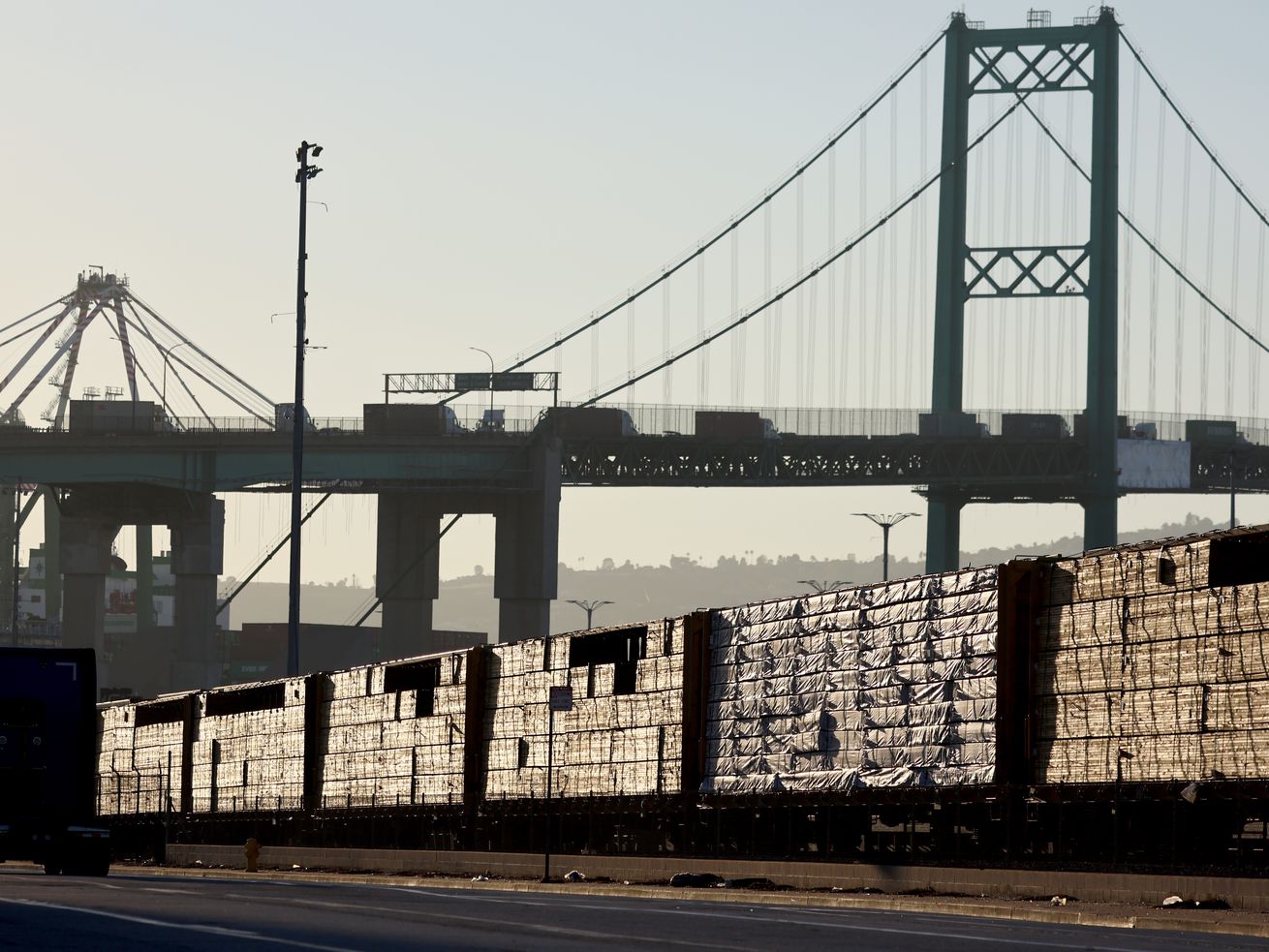Labor successfully pressured Congress to vote on paid sick leave for rail workers.
For the first time in roughly 30 years, Congress has intervened ahead of a potential rail strike following calls from President Joe Biden to do so.
At Biden’s request, the House of Representatives took action on Wednesday, passing two resolutions. The first resolution, which passed 290-137, would require workers to accept the tentative agreement the Biden administration negotiated in September.
That deal included an increase in pay and an additional personal day, but failed to address demands workers had over paid sick leave. Currently, rail workers don’t have paid sick days and have to use vacation time instead. Effectively, this means that workers need to get any time off approved in advance, meaning they often have to work if they come down with an unplanned illness or have a medical emergency. The addition of a single personal day in the September agreement was intended to reflect this concern, though it fell short of doing so — and has prompted multiple unions to reject the deal.
The second House measure, which passed 221-207, would provide seven paid sick days, in an attempt to address workers’ concerns. Three Republicans joined Democrats to approve the measure that included sick days.
Democrats’ decision to add a vote on paid sick days comes after major blowback from lawmakers like Sen. Bernie Sanders (I-VT) and rail unions, who were disappointed by Biden’s push to approve a deal that did not adequately tackle this issue.
Both resolutions now head to the Senate, where the second faces some uncertainty. While Republicans have been open to imposing the White House’s deal, it’s not yet clear how many would support the addition of paid sick time. The measures were passed separately with this in mind; regardless of whether there’s enough GOP support to give workers sick days, there does appear to be enough votes to ensure a strike doesn’t happen ahead of a negotiations deadline on December 9.
Congress’s role in curtailing rail strikes, briefly explained
Congress’s approach to this rail dispute is indicative of how much power they have in resolving such conflicts.
The Railway Labor Act, which was passed in 1926, gives lawmakers significant leeway over how they could approach the current situation. In addition to approving the tentative agreement, Congress is able to add provisions to it, like paid sick time. Lawmakers can also extend the amount of time that railroads and workers have to negotiate or set up an independent body to help determine a resolution.
Previously, Congress ended a strike that took place in 1992 by establishing an arbitration system for both parties to reach an agreement. “Given that they have the power to force a settlement, I don’t think there are any limits on that,” says Cliff Winston, an economic policy expert at Brookings.
As is the case with many bills, the main limitation that lawmakers are running up against is the amount of political support any measure is able to receive. Both resolutions under consideration will need the support of 60 members in the Senate, including 10 Republicans, some of whom have expressed openness to incorporating worker demands.
“The way to avoid a strike is a new deal that rank and file members will support,” Sen. Marco Rubio (R-FL) recently wrote in a tweet.
House vote on paid sick days follows blowback from labor
In his statement urging congressional action, Biden referred to himself as a “proud pro-labor president,” a title his recent actions seemed to contradict. Although he’s certainly been supportive of unions in the past, his call for congressional action to approve the agreement without sick days raised the ire of multiple unions.
“Passing legislation that excludes paid sick leave won’t address rail service issues. Rather, it will worsen supply chain issues and further sicken, infuriate, and disenfranchise Railroad Workers as they continue shouldering the burdens of the railroads’ mismanagement,” wrote the Brotherhood of Maintenance of Way Employees.
The AFL-CIO, one of the largest labor federations in the country, echoed this statement, calling for Congress to approve paid sick time as part of its efforts.
“While the tentative agreement unions negotiated this year included many critical gains — significant wage increases, caps on health care premiums, and prevention of crew reduction — it also fell short by not including provisions on paid sick leave or fair scheduling,” AFL-CIO President Liz Shuler said in a statement.
Previously, Biden had emphasized that he was worried any modifications to the existing agreement could cause delays and raise the risk of a strike. In his statement, Biden focused heavily on how significant the economic fallout would be if there is no resolution to this standoff. More than 750,000 people could be out of work during the strike, and transportation of food, fuel, and other commodities could come to a standstill, he noted.
Democrats’ votes on Wednesday marked an attempt to balance the demands of labor with concerns about the economic effects that could result if they don’t move quickly enough to address the issue. The joint consideration of both the September agreement and paid sick days aimed to address a situation that’s been difficult for the party politically, as it’s sought to juggle competing interests.
Update, November 30, 2 pm: This story was originally published on November 29 and has been updated to include the House passing two resolutions.
Author: Li Zhou
Read More



